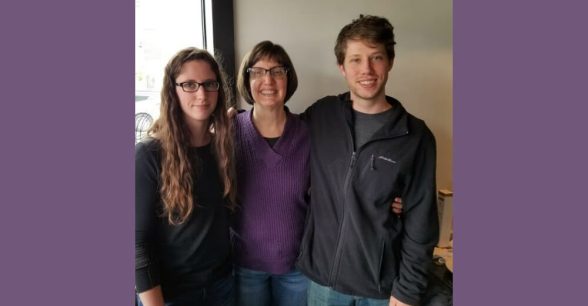How Life-Sustaining Medical Care Can Trigger Memories of Sexual Violence
This blog post is part of a series in partnership with the Disability Visibility Project® to bring attention to the omission of disability from larger conversations taking place within the #MeToo Movement.
Trigger warning: this post discusses sexual abuse, rape, and PTSD.
The last time a man touched my genitals, my life was under threat. He made it clear to me that I had to lie still and let him do so or I would die. Even when I screamed, he didn’t stop. I had no choice.
He was my doctor. I was suffering life-threatening sepsis, and he had to change my catheter as part of saving my life.
I am used to being touched by people. Paralysed, I have no physical ability to resist. Every day my body is parcelled up and spread out. Drugs, sprays, inhalers, antifungals, anti-biofilm, anal catheter in and out, washing, dressing, pressure checks. No part of this body remains mine, and nothing is private.
I am a series of medical risks – this pressure sore, that respirator, this dislocated joint, that paralyzed limb. Creams in this crease and gels in that one. My carer has to trim my pubic hair. I am constantly being lifted, hoisted, turned and repositioned. Strangers try to shift my chair, pat my head, stroke my arm, brush against me, offer to help, and ignore my refusals.
Do I consent to any of this? Or, to put that another way, can I meaningfully refuse it?
What is consent, when all my medical care is done to keep me alive, and when I wish to be alive? When I was raped as a teenager, my life was made contingent on my stillness and silence. I lay still. Now, I am told I have to lie still or I will die, so I lie still. I scream in pain, they continue anyway. What’s the difference?
There is, of course, a difference. The doctors, nurses, care assistants, all of what they put me through is “necessary.” They did not create the situation where I have to lie still or die. They are not getting off on the power they have over me. We all share the goal of my survival, but my brain doesn’t understand that any more.
Receiving necessary medical care isn’t the same as the sexual violence I’ve experienced, but the emotional impact is the same. The traumatized brain has little relation to reality. If someone brushes against me in the street, my brain believes it to be the precursor to another rape. When a nurse comes to change my catheter and inserts it vaginally repeatedly, ignoring my insistence that he’s in the wrong place, my brain interprets it as rape. I am often forced to be in the hospital, but the hospital is a critical site of trauma for me. I cannot be there without extreme flashbacks. It is impossible to tell myself that it is necessary, and that I will survive.
These experiences of traumatic personal and medical care have compounded the PTSD I developed after sexual assault, but the medical staff could have done many things differently. If the nurse inserting a catheter vaginally by accident had listened to my protests instead of insisting he knew best; if the doctors had talked me through what they were doing and made sure I had someone I trusted with me before they started undressing me; if the staff had approached me as someone potentially traumatized and given me slow, cautious care, some of the trauma would be mitigated.
Abled people continually patrol the boundaries of what is sexual assault and what isn’t – a man grabbing a woman’s hips and moving her out of his way: inappropriate; a man grabbing a woman’s wheelchair handles and pushing her up a curb: being nice and trying to help. My experiences are not unique. Disabled women are two to four times as likely to be sexually assaulted as non-disabled women, while 83% of women with intellectual or developmental disabilities will be sexually assaulted. Every disabled woman I’ve talked to about this has experienced sexual assault, and every woman with physical impairments has also experienced medical coercion and unwanted touching. It is endemic, but the desexualisation of disabled people leads us to receive inadequate sex education, and denies children the opportunity to define their own physical boundaries.
There is no way of undoing a violation – whether for medically necessary reasons or not; and there is no language to talk about incidences that may have saved our lives at the cost of our boundaries. Disabled people’s voices need to be heard when we discuss caregiver abuse, medical abuse, and the constant ways abled people violate our bodily boundaries in every context.
About Rooted In Rights
Rooted in Rights exists to amplify the perspectives of the disability community. Blog posts and storyteller videos that we publish and content we re-share on social media do not necessarily reflect the opinions or values of Rooted in Rights nor indicate an endorsement of a program or service by Rooted in Rights. We respect and aim to reflect the diversity of opinions and experiences of the disability community. Rooted in Rights seeks to highlight discussions, not direct them. Learn more about Rooted In Rights



